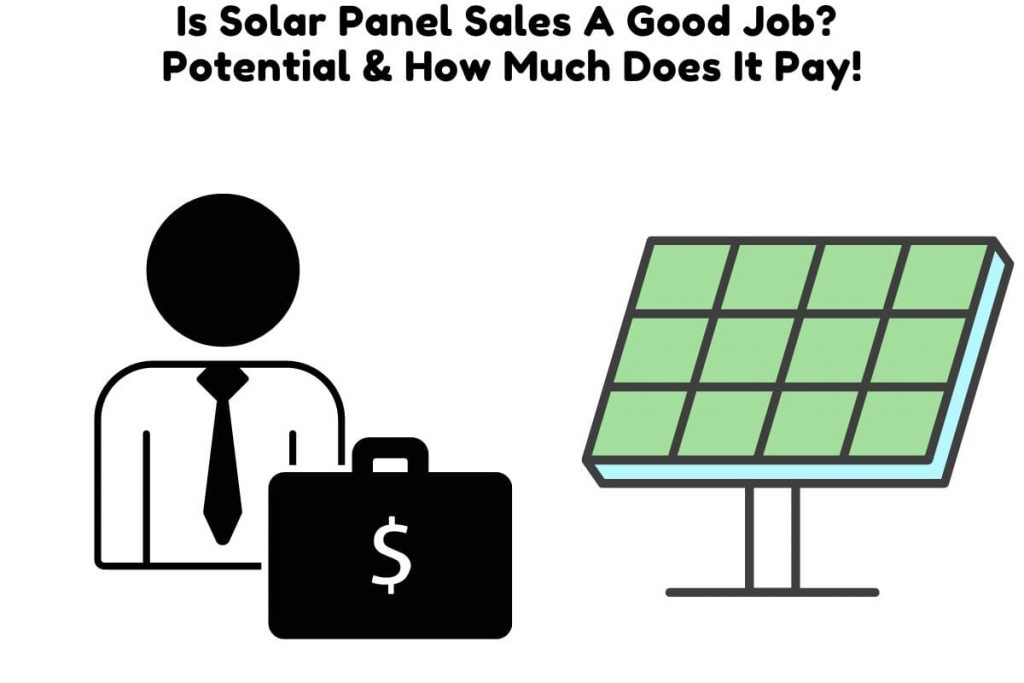Solar is one of the fastest growing job markets in the U.S and around most parts of the world. With over 240,000 workers, America has more workers in solar than in the oil, coal and natural gas industries combined.
This growth in solar has been driven by falling solar panel prices, government policy, and growing consumer awareness about carbon emissions and climate change. For the foreseeable future, the trend will likely continue upward. What does this mean if you want to get into solar?
Now is a good time to get into solar sales and installations. Ten years ago, solar panels seemed like an unnecessary novelty. Now they’re becoming a necessary utility.
But how hard is it to sell solar and how do you get into it? Let’s consider some of the facts around solar and what they mean for someone looking at getting into the industry.

Is Selling Solar Panels Hard?
There are several reasons why solar is becoming increasingly popular with consumers. The main reasons are falling solar prices and growing concern about climate change. These and several other reasons make solar more attractive and easier to sell.
On a side note! If you’re in need of a reliable and high-performance portable solar panel, We strongly recommend the Jackery SolarSaga 100W Portable Solar Panel (Amazon Link).
With a high conversion efficiency and foldable design, this solar panel is easy to transport and set up, making it perfect for outdoor activities like camping, hiking, and RV trips.

The US solar cell technology used in this panel ensures that you get the most efficient and reliable solar charging possible.
There is also a 60W option that is more affordable (Amazon Link)
Solar is getting cheaper
The cost to go solar has fallen by over 60 percent in the last ten years. In 2010, an average-sized solar system in the U.S cost about $40,000. Today, thanks to cheaper solar panels and government tax incentives, the price has fallen to an average of $20,000.
Cheaper prices are driving solar adoption. This comes at a time when electricity prices are on the rise. In the last couple of years, U.S electricity prices have increased by 4 percent per year. This upward spike in electricity prices may continue for the next few years.
There’s also energy security. Blackouts have become more frequent as grid infrastructure gets older and does not get upgraded. Many homeowners are turning to solar as a backup for grid-supplied electricity. In 2020, the U.S had some of its worst blackouts in recorded history, with consumers experiencing eight hours of power interruptions. Source
Climate change
People are becoming more conscious of the environment. Nowhere is this more apparent than in the products they use. Consumers will pay a premium for sustainable goods and services.
This is partly why electric cars are expensive and yet companies like Tesla have waiting lists for people wanting to buy their cars. It is also why homes with solar panels sell faster and for a higher price.
A decade ago, there wasn’t as much awareness around climate change as there is today. Now it is driving the consumption of everything from biodegradable toothbrushes to high-end solar roofs that cost up to $70,000.
The heavy awareness campaigns by lobbyists, climate change groups, and governments make it far much easier to sell solar panels. A decade ago, solar companies had to first sell the idea of solar panels. Now the market is maturing and thanks to growing consumer awareness, all they have to do is sell the end product.
Solar adoption
Cheaper prices and growing consumer consciousness about climate change are the chief drivers of solar adoption. These are not the only factors, however.
Solar technology has vastly improved over the last two decades. The efficiency of commercially available solar panels has gone from an average of 15 percent in the early 2000s to around 23 percent today. There is even talk of reaching 30 percent before the end of this decade.
Perovskite solar cells are a promising area of solar panel technology that is almost market ready. Once perovskite solar panels become commercially viable, they will bring in cheaper, more efficient solar panels.
Not only do solar panels work better, but they also look better. Modern solar systems have fewer components that look much nicer than earlier versions.
All of these factors are driving increased solar adoption. Much like owning an iPhone, owning a solar system and electric car is becoming an increasingly sought-after status symbol. Source
Combined, all these factors make selling solar a much easier job than it was 10 or 15 years ago. It can also be a very financially rewarding job.
How Much Do Solar Energy Salesmen Make?
The average salary for solar sales jobs is $81,635. The salaries vary with the role. For example, a door-to-door solar energy salesperson can take home as much as 92,000 per year. A lead generation specialist, on the other hand, can make $88,002 per year.
How much you earn as a solar salesperson will depend on your experience and the location you choose to work in. Naturally, someone with years of experience in the solar field stands to earn more than an entry-level salesperson.
Location is an important factor because there are states where the demand for solar is higher. California, North Carolina, and Texas lead in solar installations in the U.S. You can expect to earn more in these states compared to states where there is less demand. Source
Another factor that could influence your earnings potential as a solar salesperson is the specific area of sales you go into. Solar equipment sales can roughly be split in two. This could be business-to-business or business-to-consumer.
Business-to-business (B2B) is where you sell other businesses. In this case, you could be a sales representative for a manufacturer or wholesaler of solar components like solar panels or batteries. Essentially, you would be selling solar panels to people who sell solar panels.
Business-to-consumer (B2C) is where you sell for a business to a consumer or end-user. This is the most common type of sales representative. Here you would be selling directly to homeowners or business owners that want to use solar energy.
Do You Need A License To Sell Solar Panels?
A license is not required to sell solar panels as an individual salesperson. A normal business license is required for companies that want to sell solar. Licensing is also required by some states to install solar panels as a contractor.
Salespeople largely have professional or educational qualifications. This is typically a bachelor’s degree. This isn’t a strict requirement as there are salespeople with high school diplomas.
